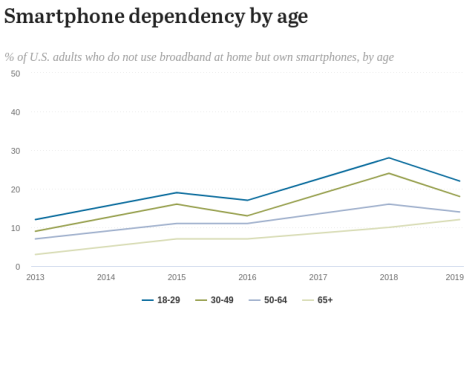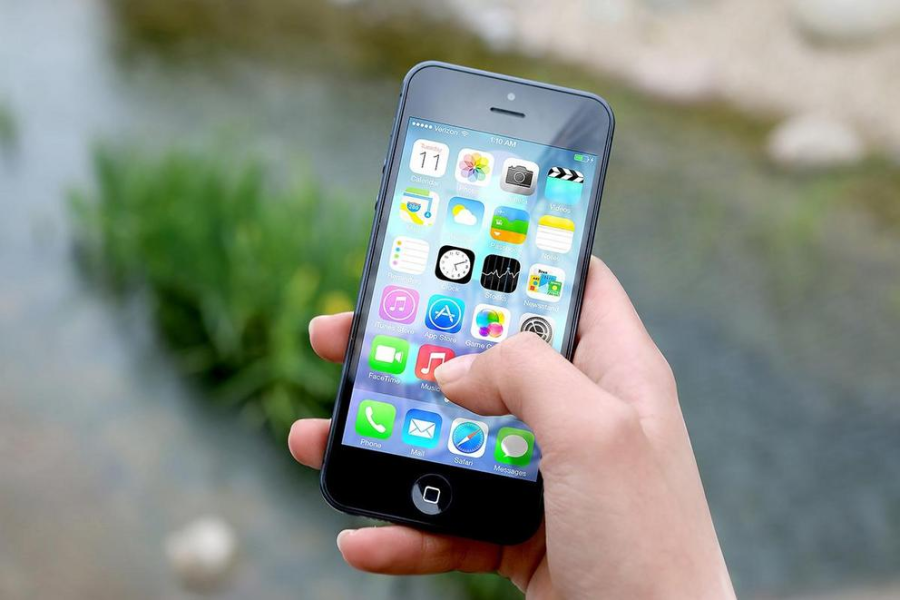Children under the age of 13 should not have cell phones
March 11, 2022
Have you ever observed the impact and problems phone usage has on young kids that can possibly lead to their misunderstanding of the environment and people around them? Well, it’s much worse than one can imagine. There are many mental and social problems to consider when entering the world of the internet. For that reason, you don’t want your younger daughter or son to come across any inappropriate and substandard content on their cell phones that can impact their behavior.
Children under the age of 13 should not have cell phones in their backpacks because their exposure to the internet and social media can badly influence their future selves. Youthful kids are at risk of developing irrational issues that can be avoided.
Phones can be a huge resource for adults at a certain age in which they are able to be responsible. A study made by Anya Kamenetz showed that “84 percent of teenagers now have their own phones, immersing themselves in a rich and complex world of experiences that adults sometimes need a lot of decoding to understand.”
It can become very overwhelming for parents to consistently keep watching out for their kids and what they possibly view on their cell phones. Children under the age of 13 are still learning and exploring new things every day from school, from friends, and from their parents.
Let’s dig a little deeper: if the usage of phones can be addictive to adults, imagine its impact on young kids. Scrolling through some random posts is not benefiting your knowledge or information, but they take away some of your time. Throughout your development, you come to realize that technology can in fact be used in a wise way.
Parents devote their everyday routine towards family and children that may need support during this time of life. Therefore, parents’ opinions matter and are really valuable as they work towards their children’s well-being and safety.
Thus, parents always have a stand when it comes down to their children owning phones. “The age of 13 would be a good appropriate time for kids to hold a cell phone because that’s when they start developing their needs,” said the parent Noha.
Social media is often filled with tragic stories and beauty standards that are based on others’ opinions. Running across a sentence or a story based on others’ experiences can highly damage mental health and brain development especially if you are still young and don’t understand that not everything you see should be taken into consideration.
Understanding the exposure to social media and the internet in general as an adult can prevent health issues. “Social media has a lot of standards and stereotypes where you can be looking on Instagram, and say “this is how beauty looks like,” said an iSchool sophomore that is currently taking the Mind’s Control Module.
Phones are extremely powerful in making someone enter the “world” of someone else through the use of social media. Realistically speaking, you are able to communicate with people while having the ability to access a lot of information. Having your kids reach this changing point at a young age is risky as it may follow problems that didn’t need to occur. The author Charles Fain Lehman recently wrote about Congress’s need to ban kids from owning phones before high school due to the increase of depression, mental illness, and suicide.

The graph represents the usage of smartphones evolving over time by age groups.
Jumping back to the importance of phones in our regular routine and how they can be widely used among grown-ups, the need for phones becomes very important once we reach a specific stage of development. In addition, we become more capable of this responsibility.
Education can become a great influence on their phone usage. Technology is very important and adapting to this new stage becomes a lifesaver. “It allows me to communicate with my friends and my mother outside of school, it also keeps me connected to my school in terms of education,” said Joy David, an iSchool sophomore that recently got her first phone last year.
Furthermore, limiting screen time on your electronic device is a very good tip for teens starting to hold a phone. Getting addicted to your phone can be one of the worst things you have to face because it takes you away from your tasks and your surroundings.
Sometimes when you have some responsibilities to handle and deal with, you will find yourself scrolling through YouTube or Instagram, which can destroy time management. Using your time wisely makes free time on your phone a lot more productive and enjoyable. Especially for teens, the time they spend on their phones can be their motivation to explore something meaningful to them for the future such as online courses and other varieties of career research.
According to Amy Morin’s research, sleeping can be a huge problem when utilizing your phone more than you should be. Smartphones can be problematic for young teens when trying to catch a good night’s sleep because they think too much about the content on their phones.
Phone rules? Some basic guidelines from the parents can help organize the whole routine so that the kids can enjoy their phone time with friends while making sure they are not being distracted by any other inappropriate content.
“In the future, I hope they can create more fun entertainment platforms for young children,” said a high school sophomore currently attending NYC iSchool. Platforms beneficial to young kids such as English word games, language learning videos, and many other fun learning activities.

Kids spend long hours playing video games on their phones.
Social and emotional development are the earliest stages that are expanded inside of our brains which leads to our other responsibilities and future paths.
“On the weekends, I spend 5-7 hours on my phone scrolling through Twitter, and then during the school week, I spend 3-4 hours,” said Joy. It’s shown that kids utilize their phones to play video games more than they are used for educational purposes. There is a specific recommended number of hours when it comes to spending “free time” on an electronic device.
The new warning from the AHA (American Hospital Association) “recommends parents limit screen time for kids to a maximum of just two hours per day.” When kids use their phones more than 2 hours a day, their eyes get tired, and they physically feel like they are not getting enough rest. Not just that, but they may have no motivation to go outside, see new people, or finish other tasks.
As young kids grow and become teens, they have the right to use cell phones and connect with the world as they wish, but it’s important to understand that everyone also has access to phones and social media giving us a warning that it may be filled with opinions, experiences, and stories that shouldn’t always be looked at and believed.
With this in mind, the age of 13 is a good time to start letting your child hold their own cell phone because they would have already learned and understood what to expect from everything they view. Kids should definitely be able to hold a phone at that age because they need to communicate with parents, their school, and other responsibilities.
Now, make sure to support and help out your younger sibling or kid if they are using their phones at a young age because it will help strengthen their development stage while making them understand future concepts and lessons about the use of technology and electronics.


